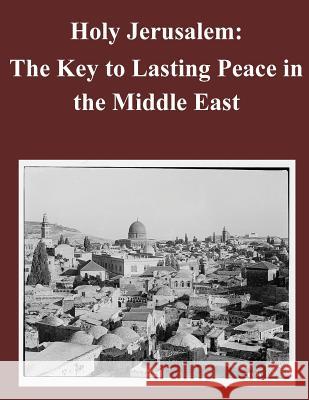Holy Jerusalem: The Key to Lasting Peace in the Middle East » książka
Holy Jerusalem: The Key to Lasting Peace in the Middle East
ISBN-13: 9781500832353 / Angielski / Miękka / 2014 / 52 str.
This book explores the Middle East Peace Process in terms of the historical and cultural attachment the three monolithic religions have toward the city of Jerusalem. Although conventional wisdom ascribes to four majors issues preventing a comprehensive settlement between the Israelis and the Palestinians: namely borders, security, right of return and Jerusalem, it is actually only Jerusalem that is paramount. If the issue of Jerusalems sovereignty can be solved a compromise solution for the other three will be found. Unfortunately, the common ground required for a negotiated settlement in regards to Jerusalem will never be found. Its religious value to Muslims, Jews and Christians alike have contributed to three millennia of monumental abuse, depravity and sacrifice, which acts as a limitless reservoir of cultural; sunk costs no contemporary government can or will ignore. Therefore, the only way a lasting solution to peace in the Middle East can be found is by a forced settlement that Israelis and Palestinians will find palatable. If all parties perceive that there is no real winner then they are more likely to accept a mandate that is less than desired. The last requirement is to develop a governmental construct that gives both Israel and Palestine as much local sovereignty over individual neighborhoods and holy sites as possible. This book suggests a new international construct. Instead of the old Corpus Separatum proposed by the United Nations, more appropriate form would be a Corpus Universitas, or world city, where everyone is a citizen of Jerusalem. One where the city is administered under revocable power by a UN member nation not associated with any of the three monolithic religions, is sanctioned, supervised and legitimized by the United Nations and it legislated by a two-tier system controlled by a council equally represented by Jews, Christians and Muslims.
Zawartość książki może nie spełniać oczekiwań – reklamacje nie obejmują treści, która mogła nie być redakcyjnie ani merytorycznie opracowana.











